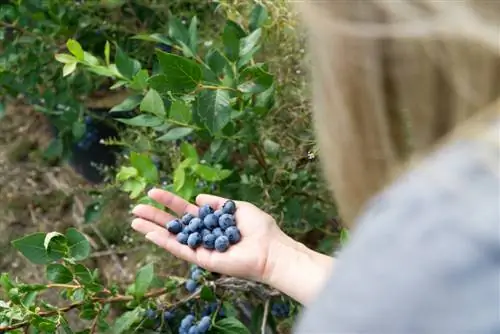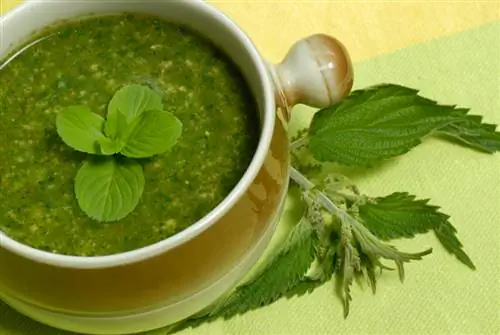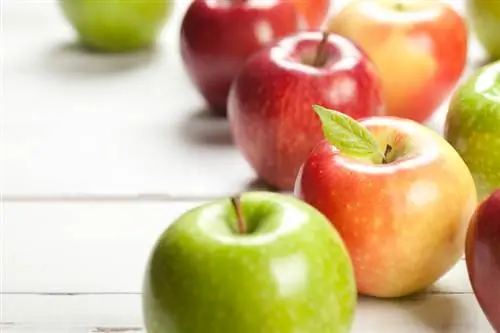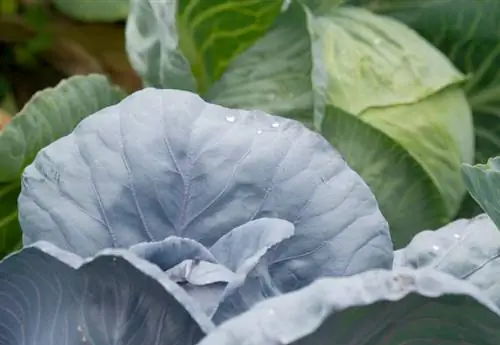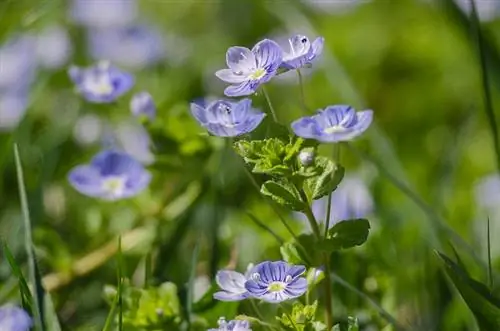- Author admin leonars@hobbygardeners.com.
- Public 2023-12-16 16:46.
- Last modified 2025-01-23 11:21.
Not only common berry varieties such as strawberries, raspberries or currants are suitable for growing berries in the garden. After all, many wild berries also have decorative flowers and a rich berry harvest.
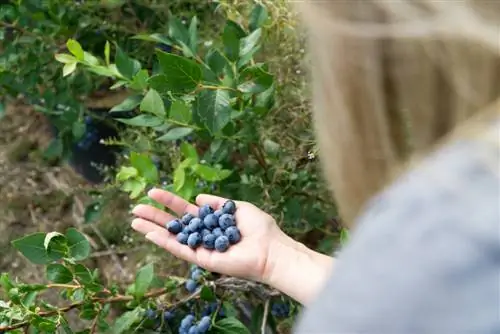
Which wild berry varieties can you grow in the garden?
The types of wild berries that can be grown well in the garden include hawthorn, rose hips (dog roses), elderberries, blueberries, juniper berries, rowan berries, sea buckthorn, sloes and cornelian cherries. These berries offer decorative flowers and bountiful harvests.
These wild berries are also suitable for growing in the garden
In addition to gooseberries, blackberries, raspberries and currants, the following wild berry varieties can be considered for growing berries in the garden:
- Hawthorn
- Roses (dog roses)
- elderberry
- Blueberries
- Juniper Berries
- Rowberries
- Sea buckthorn
- Blackthorn
- Blueberries
- Cornelian cherries
These types of berries are usually referred to as wild berries because they occur as wild plants in the forest or on the edge of the forest and are not classic garden plants that can be found as cultivated varieties in almost every garden.
Wild berries as a basis for jams, juices and alcoholic drinks
Some wild berries, such as the wild forms of the blueberry or the dark berries of the elderberry, can be enjoyed fresh at harvest time. Other types of wild berries can sometimes be safely eaten fresh, but are traditionally found in jams, vitamin-rich juices or as a flavoring ingredient in homemade wine and sparkling wine creations as well as in fine brandies. Of the latter, particular mention should be made of rowanberry schnapps, which requires around 100 liters of mash to produce two liters of fine brandy. Rose hips, cornelian cherries, cranberries and blueberries are ideal for making jams. The fruits of the sea buckthorn can be processed into a juice with a particularly high vitamin C content.
Some wild berries are not particularly digestible fresh
While rowan berries, for example, are usually only harvested after the first frosts due to the associated breakdown of bitter substances, juniper berries should be enjoyed with caution due to their ingredients. However, they can be used to make smoking flour or as an important flavoring ingredient for gin. When it comes to elderberry, many gardeners only allow some of the berry umbels to ripen because they use the fragrant flowers months beforehand to make fruity elderberry sparkling wine or mix the flowers with a lot of sugar in water to make homemade beverage syrup. When it comes to rose hips, care should be taken to carefully remove the nuts from the inside, which can sometimes provoke allergic reactions, both for fresh consumption and before further processing.
Tip
The cornelian cherry, which is still rare in private gardens, not only bears extremely tasty fruits, but is also an important pasture for bees due to its early flowering period from February onwards.

